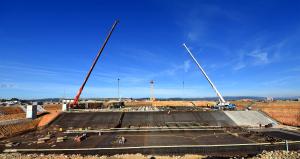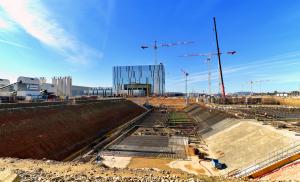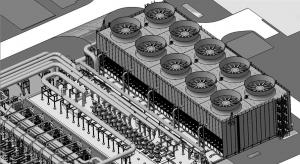Letting off the heat
At the northeast end of the ITER site, in a zone not far from the Tokamak Complex and Assembly Hall, workers are busy installing rebar reinforcement, pouring concrete and erecting walls and columns.
The 6,000 m² area will be home to the final link in one of ITER's most widely distributed plant systems—the cooling water system, whose kilometres of piping, closed and open loops, and heat exchangers will collect and reject the heat generated by the Tokamak's plasma pulses and the operation of its auxiliary systems.
With the exception of the civil works, which are under Europe's responsibility, the cooling water systems in this zone are part of India's procurement to ITER and will be installed by the ITER Organization.
And where an industrial power plant would deliver constant power output, the typical ITER operation cycle will consist of a succession of 500-second plasma pulses, each followed by 1300-second "dwell" period.




